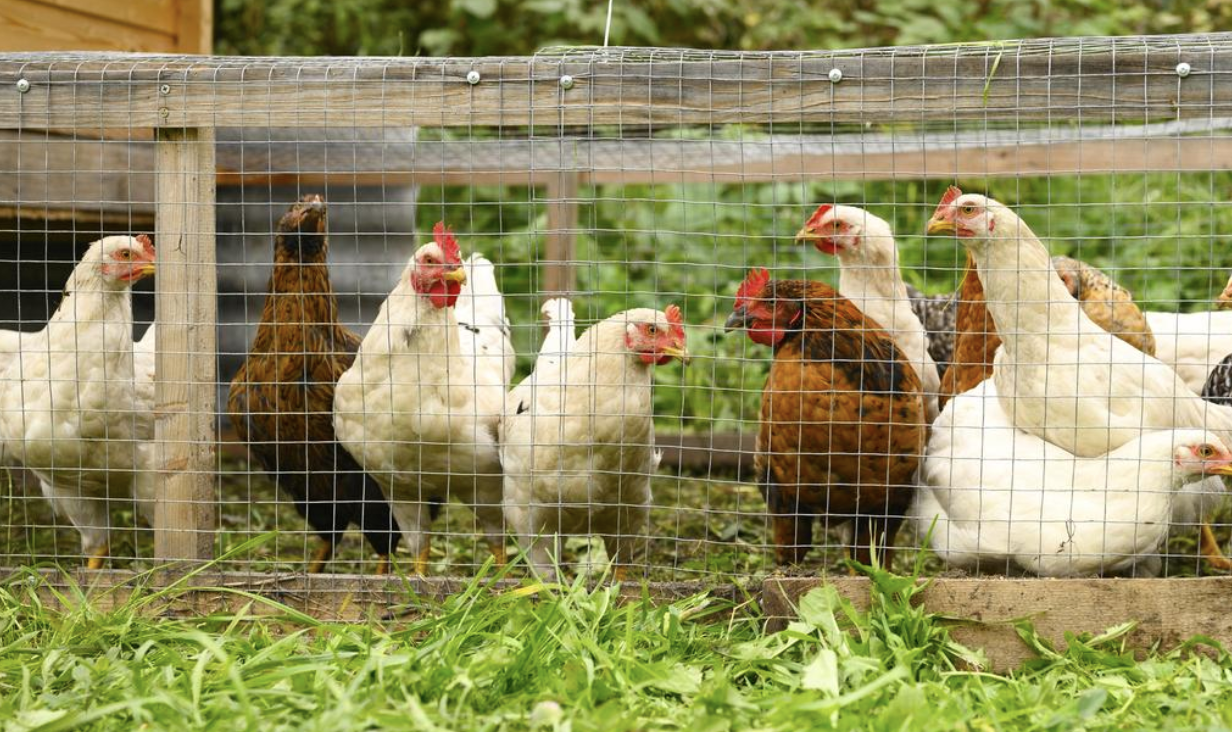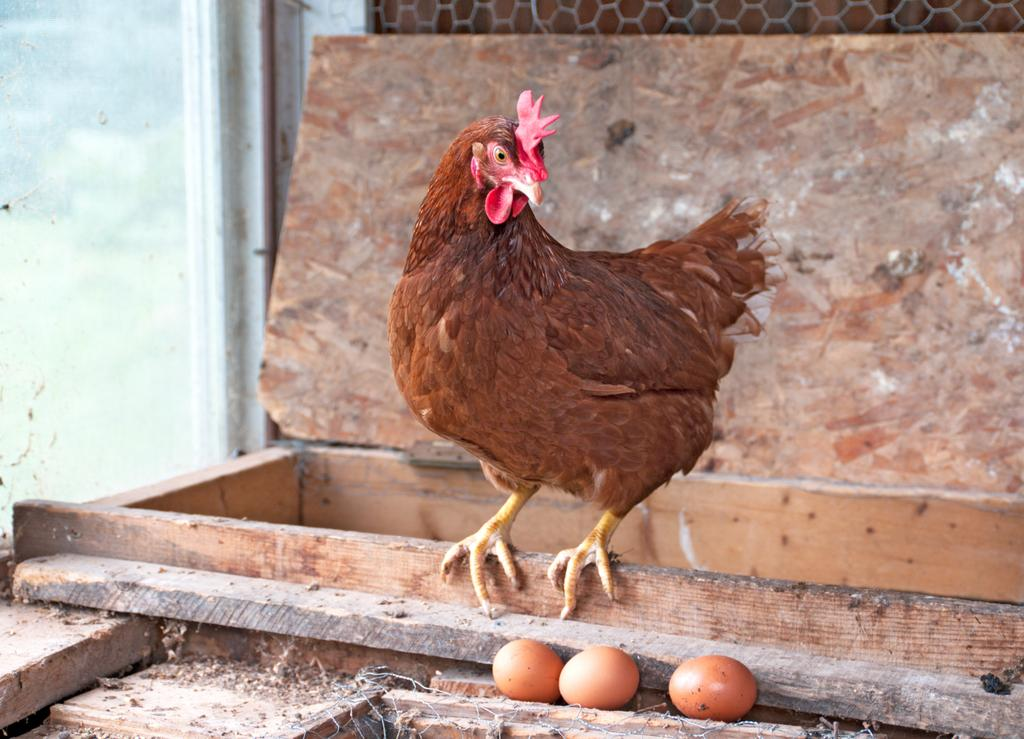Is your health at risk from backyard hens' eggs? Here's what you need to know
- Replies 10
Of the nearly half a million Aussies who raise chooks in their own backyard, we bet most agree that there's nothing quite like a breakfast featuring eggs straight from the coop.
It's not always the quality of freshness and taste that makes homemade eggs stand out from store-bought alternatives.
Australia is in the middle of an egg shortage, so people are setting up chook pens in their backyards just to make ends meet.
However, a recent study has discovered that backyard hen-produced eggs may have harmful lead levels up to 40 times greater than supermarket-purchased eggs, prompting a caution to urban gardeners.

Eggs from backyard chickens could be bad for you and your family's health. Credit: iStock.
In the study, which was published in the journal Environmental Pollution, scientists from Macquarie University and the Australian National University took blood and egg samples from nearly 70 domestic chickens from 55 urban gardens in Sydney.
The researchers looked at how much trace metals were in the garden soils of Sydney homes and in the chickens and eggs that came from them. They also looked into other possible sources of contamination, like the water that animals drink and the food that chickens eat.
Scratching in the soil and pecking at food from the ground are the main ways in which harmful lead enters the chickens' bodies.
There was a strong link between the amount of lead in the soil and the amount of lead in the blood and eggs of chickens. In some samples, they found possible contamination from drinking water and commercial feed supplies, but it was not a significant source of exposure.

There was a strong correlation between lead concentrations in chicken eggs and the amount of lead in the soil. Credit: Getty Images.
Using the Australian VegeSafe garden soil database, which has information from more than 20,000 samples, the results were then used to predict which areas of inner-city Sydney, Melbourne, and Brisbane are likely to have soil lead concentrations that are too high for keeping backyard chickens.
'Our newly published research found backyard hens' eggs contain, on average, more than 40 times the lead levels of commercially produced eggs,' study authors Mark Patrick Taylor, Dorrit E. Jacob and Vladimir Strezov wrote in their report.
'Almost one in two hens in our Sydney study had significant lead levels in their blood. Similarly, about half the eggs analysed contained lead at levels that may pose a health concern for consumers.'
Watch the video below to learn more information about their findings and the way that they carried out their research:
Credit: The Conversation.
Many people who grow food in their own yards might be surprised by these results. It’s often assumed that a home coop would produce healthier eggs. The trend of people growing their own food has been going up for the past decade, and rising grocery prices have made it go up even more in the last few years.
While urban gardening is valuable and should be encouraged, studies of contaminated Australian home garden soils and trace metal uptake in plants reveal it should be done with great caution.
Over the long history of Australian cities, pollution has built up in the soil. These toxic chemicals can get into our food chain through vegetables, honey bees, and chickens.
Members, if you have been keeping chickens in your yard or have been planning to start doing so for some time now, it is highly recommended that you have the lead content of your soil checked and analysed.
This can be done at VegeSafe or by using a commercial lab. The soils identified as problematic can be replaced, and hens can be confined to areas with verified clean soil.
Stay safe, members! And let us know, do you keep chickens?
It's not always the quality of freshness and taste that makes homemade eggs stand out from store-bought alternatives.
Australia is in the middle of an egg shortage, so people are setting up chook pens in their backyards just to make ends meet.
However, a recent study has discovered that backyard hen-produced eggs may have harmful lead levels up to 40 times greater than supermarket-purchased eggs, prompting a caution to urban gardeners.
Eggs from backyard chickens could be bad for you and your family's health. Credit: iStock.
In the study, which was published in the journal Environmental Pollution, scientists from Macquarie University and the Australian National University took blood and egg samples from nearly 70 domestic chickens from 55 urban gardens in Sydney.
The researchers looked at how much trace metals were in the garden soils of Sydney homes and in the chickens and eggs that came from them. They also looked into other possible sources of contamination, like the water that animals drink and the food that chickens eat.
Scratching in the soil and pecking at food from the ground are the main ways in which harmful lead enters the chickens' bodies.
There was a strong link between the amount of lead in the soil and the amount of lead in the blood and eggs of chickens. In some samples, they found possible contamination from drinking water and commercial feed supplies, but it was not a significant source of exposure.
There was a strong correlation between lead concentrations in chicken eggs and the amount of lead in the soil. Credit: Getty Images.
Using the Australian VegeSafe garden soil database, which has information from more than 20,000 samples, the results were then used to predict which areas of inner-city Sydney, Melbourne, and Brisbane are likely to have soil lead concentrations that are too high for keeping backyard chickens.
'Our newly published research found backyard hens' eggs contain, on average, more than 40 times the lead levels of commercially produced eggs,' study authors Mark Patrick Taylor, Dorrit E. Jacob and Vladimir Strezov wrote in their report.
'Almost one in two hens in our Sydney study had significant lead levels in their blood. Similarly, about half the eggs analysed contained lead at levels that may pose a health concern for consumers.'
Watch the video below to learn more information about their findings and the way that they carried out their research:
Credit: The Conversation.
Many people who grow food in their own yards might be surprised by these results. It’s often assumed that a home coop would produce healthier eggs. The trend of people growing their own food has been going up for the past decade, and rising grocery prices have made it go up even more in the last few years.
While urban gardening is valuable and should be encouraged, studies of contaminated Australian home garden soils and trace metal uptake in plants reveal it should be done with great caution.
Over the long history of Australian cities, pollution has built up in the soil. These toxic chemicals can get into our food chain through vegetables, honey bees, and chickens.
Members, if you have been keeping chickens in your yard or have been planning to start doing so for some time now, it is highly recommended that you have the lead content of your soil checked and analysed.
This can be done at VegeSafe or by using a commercial lab. The soils identified as problematic can be replaced, and hens can be confined to areas with verified clean soil.
Stay safe, members! And let us know, do you keep chickens?








